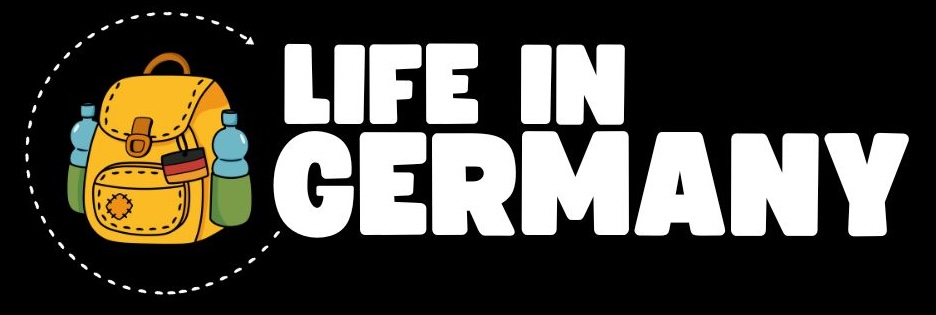As a foreigner living in Germany, there are several mistakes that many newcomers make, often without even realizing it. In this article, we’ll explore eight common mistakes as a foreigner in Germany that can leave you feeling embarrassed or out of place. Understanding these pitfalls can help you navigate your new life in Germany more smoothly.
8 Terrible Mistakes as a Foreigner in Germany 😫
- 1. Confusing Date Formats 📅
- 2. Struggling with the 24-Hour Clock ⏰
- 3. Birthday Celebrations Gone Awry 🎂
- 4. The Formal vs. Informal “You” 💬
- 5. Dealing with Mumblers 🤔
- 6. Small Talk Challenges ☕
- 7. Tipping Etiquette 💵
- 8. Grocery Store Antenna Mistakes 🛒
1. Confusing Date Formats 📅
One of the most common mistakes as a foreigner in Germany is the date format. In Canada, for instance, the format is month/day/year, while in Germany, it’s day/month/year. This simple switch can lead to missed appointments and confusion. For example, writing 03/04/2023 could mean March 4th in Canada but April 3rd in Germany. To avoid this, always double-check dates when scheduling appointments or events.
The best way to remember this is by thinking about the smallest time unit first. In Germany, you start with the day, followed by the month, and then the year. This logical progression can help you adjust your mindset and prevent mix-ups.
2. Struggling with the 24-Hour Clock ⏰
Another common mistake as a foreigner in Germany is the 24-hour clock system. Many foreigners, especially those from countries that primarily use the 12-hour format, find this transition challenging. It’s not uncommon to see someone glance at a clock displaying 16:00 and feel lost.
To make this easier, practice converting times in your head. Remember that 16:00 is 4 PM and that you can often find yourself in situations where using the 24-hour clock is the norm. Familiarizing yourself with this system will make daily life much simpler.
3. Birthday Celebrations Gone Awry 🎂
In Germany, wishing someone a happy birthday before their actual birthday is considered bad luck. This can be a tough cultural difference to navigate, especially if you’re used to celebrating birthdays in a more relaxed manner. For instance, it’s common in Canada to give gifts and say “Happy Birthday” days in advance.
In Germany, however, it’s best to keep your greetings and gifts until the actual day. This can feel restrictive, especially for those who enjoy the anticipation of celebrations. To avoid any faux pas, mark your calendar and be mindful of your friends’ birthdays, ensuring that you only celebrate on the designated day.
4. The Formal vs. Informal “You” 💬
Addressing people correctly in German is crucial, and it can be a common mistakes as a foreigner in Germany. The language has two forms of “you”: the formal “Sie” and the informal “du.” Using the wrong form can lead to awkward situations, especially in professional settings or with older individuals.
When in doubt, start with “Sie” until you are invited to use “du.” This shows respect and helps you avoid any cultural missteps. Over time, you’ll learn when it’s appropriate to switch to the informal form.
5. Dealing with Mumblers 🤔
Communication in a new language can be challenging, particularly when many native speakers mumble or speak quickly. This can leave you feeling lost in conversations, especially if you’re still mastering the language. It’s common to pretend to understand, but this can lead to misunderstandings.
If you struggle to hear or comprehend someone, don’t hesitate to ask them to repeat themselves or speak more slowly. Most people appreciate the effort you are making to understand them and will be happy to accommodate you.
6. Small Talk Challenges ☕
In many cultures, small talk is a common way to break the ice, but in Germany, it can be a bit more subdued. Germans are often perceived as straightforward and may not engage in small talk as much as other cultures do. However, this doesn’t mean that it’s completely absent.
When you visit local bakeries or shops, a simple “Wie geht’s?” (How are you?) can go a long way. Engaging in small talk can create a friendly atmosphere and may even lead to more meaningful conversations over time.
7. Tipping Etiquette 💵
Tipping practices vary from country to country, and Germany is no exception. In Canada, it’s typical to tip around 15-20%, but in Germany, the norm is closer to 10%. Many foreigners mistakenly overtip, thinking they are being generous, when in fact, they may be throwing off the cultural balance.
To tip appropriately in Germany, simply round up your bill. For example, if your bill is €32, you might leave €33. This small adjustment can help you fit in with local customs while still showing appreciation for good service.
8. Grocery Store Antenna Mistakes 🛒
Finally, a seemingly trivial but culturally significant mistake involves the use of the grocery store separator. In Germany, it’s customary to place a separator between your groceries and the items of the person behind you. Forgetting to do this can lead to annoyance from other shoppers.
The grocery store separator is a simple tool, but it reflects a larger cultural value of respecting personal space and property. Make it a habit to always use it, and you’ll fit in better with local shopping etiquette.
In conclusion, navigating life as a foreigner in Germany comes with its challenges, but understanding these common mistakes as a foreigner in Germany can make your transition smoother. Embrace the learning process, and don’t be afraid to ask questions or seek clarification. The more you engage with the culture, the more comfortable you’ll become.
Made with VideoToBlog

